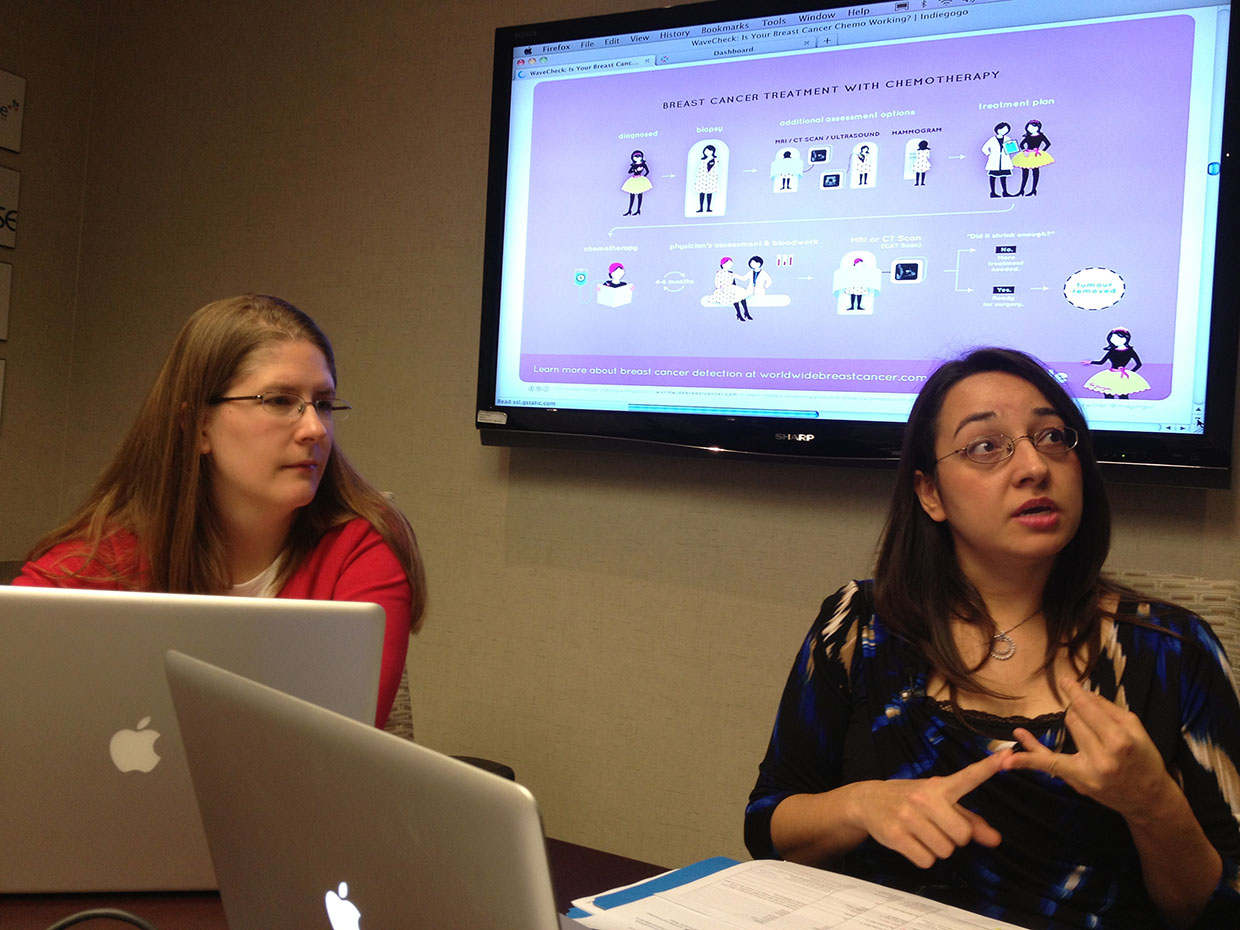 MaRS Innovation staff and WaveCheck Campaign Co-directors Dr. Fazila Seker and Elizabeth Monier-Williams spoke with the CBC’s Colleen Ross about the process of crowdfunding WaveCheck’s partner-based clinical studies on “The World This Weekend.”
MaRS Innovation staff and WaveCheck Campaign Co-directors Dr. Fazila Seker and Elizabeth Monier-Williams spoke with the CBC’s Colleen Ross about the process of crowdfunding WaveCheck’s partner-based clinical studies on “The World This Weekend.”
The radio segment, called “Crowdfunding Science,” aired on January 25, 2014 and discussed the lack of funding researchers have access to for commercialization, making it harder to advance research that could be helping people in a variety of industries.
To listen to the full interview, click here.
WaveCheck’s crowdfunding campaign is an example of how MaRS Innovation gets creative when traditional funding channels take too long or run dry, speeding up the commercialization process.
Crowdfunding can quickly generate crucial funds and raises awareness about innovations that may have otherwise been lost in the commercialization stage known as “The Valley of Death,” which occurs when a particular technology no longer has the means to continue the costly refinement and quality control stages needed to reach the market and halts in its progress.

As Seker and Monier-Williams make clear, the process is also time intensive. “We knew based on our homework that it was going to be our lives 24/7, which it was,” says Seker.
“It’s a long-tail experience,” adds Monier-Williams.
WaveCheck is based on nearly 20 years of lab-based research by co-inventors Dr. Gregory Czarnota and Professor Michael C. Kolios of Sunnybrook Health Sciences Centre and Ryerson University, respectively.
The Indiegogo campaign, led by MaRS Innovation, wrapped December 4, 2013 after raising a total of $53, 390 for the breast cancer technology that helps women know whether their chemotherapy treatment is working at the beginning, not the end, of treatment thanks to support from over 500 supporters worldwide.
By Kailee Travis, writer and communications assistant.

